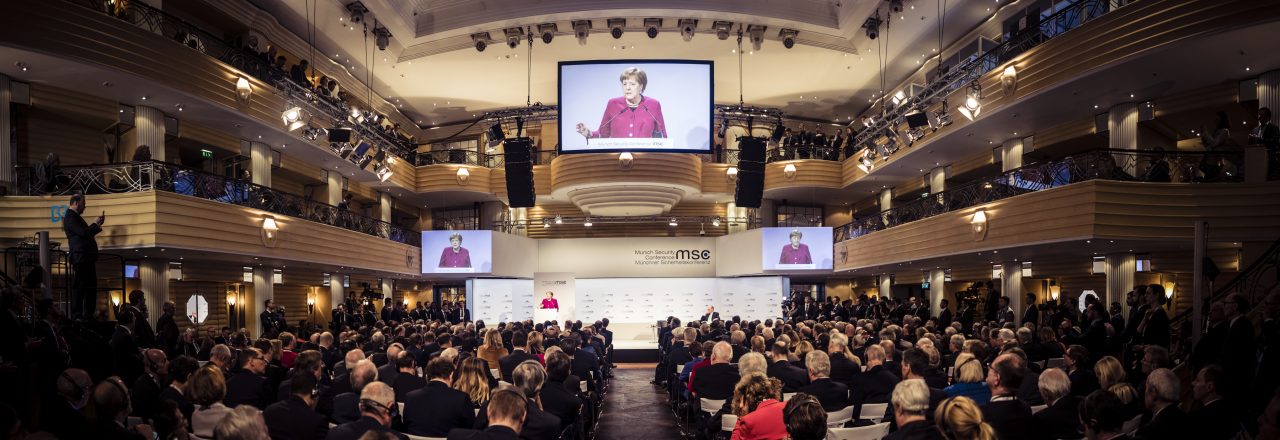
The Middle East at the heart of the Munich Security Conference 2019
On 15-17 February, more than 35 heads of government or state, as well as 50 foreign and 30 defense Ministers were present at the yearly Security Conference held in Munich (MSC). Subjects such as the future of arms control and cooperation in defense policy, the intersection between trade and international security and the effects of climate change and technological innovations on the international security were examined during the conference. The Middle East is “undergoing a major transformation” according to the MSC Report, where the U.S. is taking a step back from direct political involvement in crises and letting regional partners handle and safeguard its interests. The MSC report also stressed that the U.S. withdrawal in Syria “will likely have tremendous geopolitical consequences”, leaving the war’s fate into Turkish, Russian and Iranians hands.
In the margins of the Munich Security Conference, High Representative/Vice-President Federica Mogherini met with the Prime Minister of Libya Fayez Mustafa al-Serraj and the Special Representative for Libya of the UN Secretary-General Ghassan Salamé. The advancement of the political process in Libya and the holding of elections once the constitutional and legal framework is approved were discussed during the meeting. High Representative Mogherini urged Libyans to avoid further armed confrontations and to preserve the oil infrastructure which should remain in the hands of the National Oil Company. They also discussed ways to accelerate economic reforms and improve conditions in the detention centers for migrants with the help of the EU and UN agencies.
- The Euromed news are edited by the team of the Euro-Mediterranean Policies Department of the European Institute of the Mediterranean -


